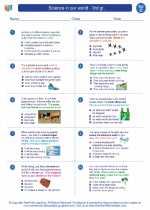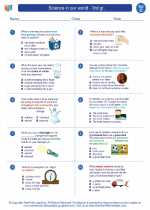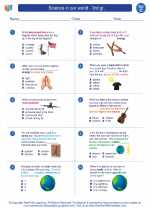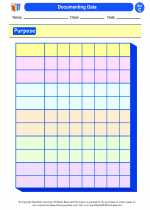Recreation
Recreation refers to activities done for enjoyment, relaxation, and refreshment. It is important for maintaining a balanced and healthy lifestyle.
Types of Recreation
- Outdoor Recreation: Activities such as hiking, camping, fishing, and cycling that take place in natural or semi-natural settings.
- Indoor Recreation: Activities such as board games, reading, and playing musical instruments that take place indoors.
- Social Recreation: Activities such as team sports, group outings, and community events that involve interaction with others.
- Active Recreation: Physical activities such as swimming, running, and dancing that contribute to physical fitness.
- Passive Recreation: Activities such as gardening, birdwatching, and picnicking that are more relaxed and less physically demanding.
Benefits of Recreation
Engaging in recreational activities has numerous benefits, including:
- Stress relief and relaxation
- Improvement in physical health and fitness
- Enhancement of mental well-being
- Building social connections and relationships
- Development of new skills and interests
Importance of Recreation for Children
For children, participation in recreational activities is crucial for their overall development. It promotes creativity, social skills, and physical fitness.
Conclusion
Recreation plays a vital role in maintaining a healthy lifestyle and fostering personal well-being. It provides an opportunity for individuals to unwind, connect with others, and explore new interests.
.◂Science Worksheets and Study Guides Third Grade. Science in our world - 3rd gr.
Study Guide Science in our world - 3rd gr.
Science in our world - 3rd gr.  Worksheet/Answer key
Worksheet/Answer key Science in our world - 3rd gr.
Science in our world - 3rd gr.  Worksheet/Answer key
Worksheet/Answer key Science in our world - 3rd gr.
Science in our world - 3rd gr.  Worksheet/Answer key
Worksheet/Answer key Science in our world - 3rd gr.
Science in our world - 3rd gr.  Worksheet/Answer key
Worksheet/Answer key Documenting Data
Documenting Data 

 Worksheet/Answer key
Worksheet/Answer key
 Worksheet/Answer key
Worksheet/Answer key
 Worksheet/Answer key
Worksheet/Answer key
 Worksheet/Answer key
Worksheet/Answer key

The resources above cover the following skills:
History and Nature of Science: A student should understand the history and nature of science. A student who meets the content standard should:
Develop an understanding that historical perspectives of scientific explanations demonstrate that scientific knowledge changes over time, building on prior knowledge.
Develop an understanding that scientific knowledge is ongoing and subject to change as new evidence becomes available through experimental and/or observational confirmation(s).